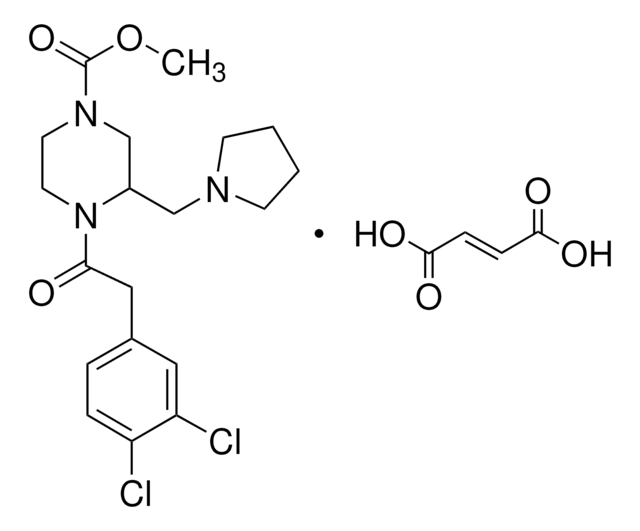T3629
DL-m-Tyrosine
≥98% (HPLC)
Synonym(s):
(±)-2-Amino-3-(3-hydroxyphenyl)propionic acid, 3-(3-Hydroxyphenyl)-DL-alanine
About This Item
Recommended Products
product name
DL-m-Tyrosine, crystalline
Assay
≥98% (HPLC)
Quality Level
form
crystalline
color
off-white to yellow
mp
280-285 °C (dec.) (lit.)
solubility
1 M HCl: soluble
application(s)
detection
SMILES string
NC(Cc1cccc(O)c1)C(O)=O
InChI
1S/C9H11NO3/c10-8(9(12)13)5-6-2-1-3-7(11)4-6/h1-4,8,11H,5,10H2,(H,12,13)
InChI key
JZKXXXDKRQWDET-UHFFFAOYSA-N
Looking for similar products? Visit Product Comparison Guide
Related Categories
Signal Word
Warning
Hazard Statements
Precautionary Statements
Hazard Classifications
Eye Irrit. 2 - Skin Irrit. 2 - STOT SE 3
Target Organs
Respiratory system
Storage Class Code
11 - Combustible Solids
WGK
WGK 3
Personal Protective Equipment
Certificates of Analysis (COA)
Search for Certificates of Analysis (COA) by entering the products Lot/Batch Number. Lot and Batch Numbers can be found on a product’s label following the words ‘Lot’ or ‘Batch’.
Already Own This Product?
Find documentation for the products that you have recently purchased in the Document Library.
Our team of scientists has experience in all areas of research including Life Science, Material Science, Chemical Synthesis, Chromatography, Analytical and many others.
Contact Technical Service









